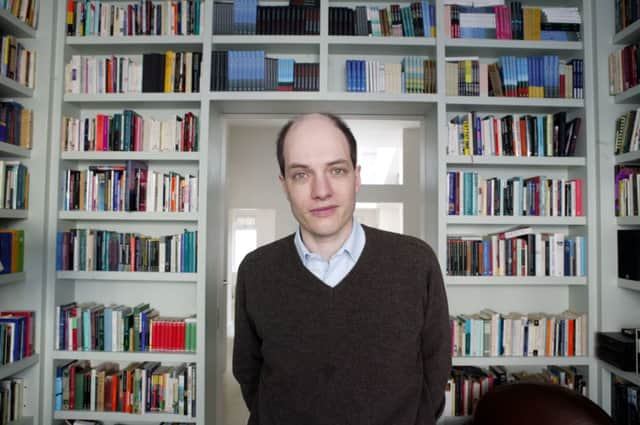Book review: The News: A User’s Manual


The News: A User’s Manual
Alain de Botton
Hamish Hamilton, 232pp, £18.99
Like all classic De Botton, there are plenty of insightful observations here, peppered with some psychology, a dash of philosophy, a big dollop of commonsense. But this is a very odd book. It’s about the news from the consumer’s perspective, why we gorge ourselves on it, what good (if any) it does us. Yet his real target seems to be the makers of news. He ends each chapter with recommendations – ranging from idealistic to just plain loopy – about how the news could be done differently to nurture a better society.
In the western world, he contends, we consume news feverishly and are rarely satisfied. Political stories leave us with vague feelings of annoyance or unease, while not encouraging us to develop our own political views. Occasionally, frustration erupts, for instance in the “primal scream” of the Occupy movement, a pressure-release valve rather than a reasoned argument for an alternative. The media, in its relentless pursuit of the new, fails to show us the big picture, which is what we need if we are to understand the problems society faces and how truly complex they are.
Advertisement
Hide AdForeign news, he says, leaves many of us bored. Daily traffic figures from the BBC news website show that 5.82m people viewed a story on Duchess of Cambridge’s due date, while 4,450 clicked on a story on a humanitarian crisis in the Congo. In order to engage people, he contends, foreign news should stop being so concerned with the facts and “submit itself to the processes of art”. Forget the impersonal voice, the quotes from both sides – give us description and detail as a novelist would. But while that might indeed snare more readers, he fails to add that it would no longer be news.
He is strongest when observing society rather than the media. Instead of condemning our celebrity-fixation, he asks what it reveals about us. People worship celebrties, he says, because they need someone to admire. Thus minor personalities become as like saints in the Middle Ages (people were equally obsessed, it seems, about the detail of their lives). The trick is to direct our admiration towards those who will, in turn, help us to become better people.
There is an interesting point about our appetite for prurient reporting of tragedy fulfilling a similar function to the crowds watching Sophocles in ancient Athens. And he makes a wise argument that our society’s materialism comes from a desire to fulfil complex psychological goals by what we buy. However, renaming the consumer pages of newspapers after those goals – “confidence” instead of fashion, “efficiency” instead of gadgets – is unlikely to catch on. He would do better instructing his readers to watch and read more thoughtfully than calling on the media to change its collective tune.
In fact, the major mistake he makes is to refer to the news media as if it was a single entity, organised and possibly malign in intent. In fact, the news is much more multifarious, from solitary bloggers to huge corporations. Pre-meditation doesn’t come into it and few within it have time to think about what kind of society might result from their choices.
It seems barely comprehensible to be reading a book about the news media in 2014 which does not mention how the news is changing, how internet-based technologies are squeezing news organisations on all sides, with all media facing relentless cutbacks. In this cut-throat environment, web traffic figures like those quoted above have more impact on editorial decisions than they should, and there is little time or money for analysis, investigation, painting the big picture. That, more than anything else, has serious implications for the society in which we live. De Botton calls for a better media, while failing to acknowledge that the one we’ve got is under threat.